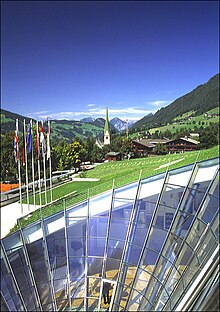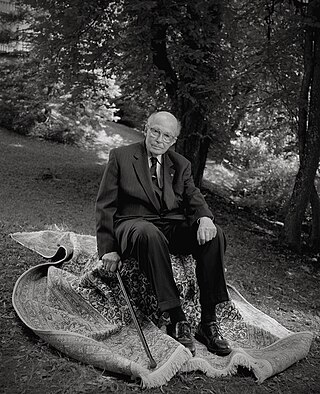
Otto von Habsburg was the last crown prince of Austria-Hungary from 1916 until the dissolution of the empire in November 1918. In 1922, he became the pretender to the former thrones, head of the House of Habsburg-Lorraine, and sovereign of the Order of the Golden Fleece upon the death of his father. He resigned as Sovereign of the Golden Fleece in 2000 and as head of the Imperial House in 2007.

Youth For Understanding (YFU) is an international educational exchange organization. A network of over 50 independent national organizations worldwide, YFU representatives work together to advance learning across cultures.
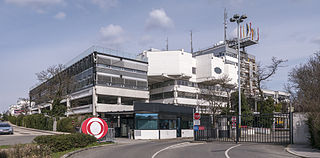
Österreichischer Rundfunk is an Austrian national public broadcaster. Funded from a combination of television licence fee revenue and limited on-air advertising, ORF is the dominant player in the Austrian broadcast media. Austria was the last country in continental Europe after Albania to allow nationwide private television broadcasting, although commercial TV channels from neighbouring Germany have been present in Austria on pay-TV and via terrestrial overspill since the 1980s.

Franz Fischler is an Austrian politician from the Christian-conservative People's Party (ÖVP). He was the European Union's Commissioner for Agriculture, Rural Development and Fisheries (1995–2004). He also was President of the European Forum Alpbach.

Erhard Busek was an Austrian politician from the Christian-conservative People's Party (ÖVP). Throughout his political career, he was widely regarded as one of the leaders of the party's liberal wing. He was coordinator of the South-Eastern Cooperative Initiative (SECI) and chairman of the Institute for the Danube Region and Central Europe.
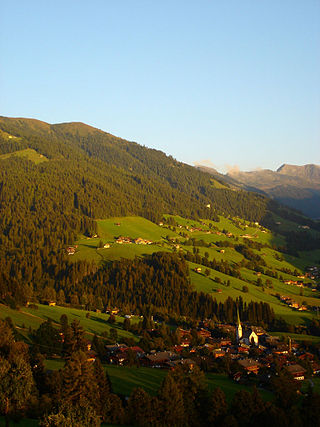
Alpbach is a town in western Austria in the state of Tyrol.
The Europaeum is a network of eighteen universities in Europe. It was conceived of in 1990–1991 by Lord Weidenfeld and Sir Ronnie Grierson and they persuaded Roy Jenkins, who had just become Chancellor of the University of Oxford, to push this initiative in conjunction with the universities of Leiden, and Bologna. It has subsequently been supporting the "advancement of education through the encouragement of European studies in the University of Oxford and other European institutions of higher education having links with Oxford."

The Space Generation Advisory Council (SGAC), in support of the United Nations Programme on Space Applications, is a non-governmental organization and professional network whose goal is to convey the perspectives of students and young space professionals to the United Nations (UN), space industry, space agencies, and academia.
The European Geography Association (EGEA) is an association encouraging European students to engage with geography through hands-on learning experiences. EGEA provides exchange programs and excursions to facilitate connection between European students and others from across the globe.

Hans Köchler is a retired professor of philosophy at the University of Innsbruck, Austria, and president of the International Progress Organization, a non-governmental organization in consultative status with the United Nations. In his general philosophical outlook he is influenced by Husserl and Heidegger, his legal thinking has been shaped by the approach of Kelsen. Köchler has made contributions to phenomenology and philosophical anthropology and has developed a hermeneutics of trans-cultural understanding that has influenced the discourse on the relations between Islam and the West.
South East Europe Media Organisation (SEEMO) is a regional non-governmental, non-profit network of editors, media executives and leading journalists in Southeast, South, East and Central Europe. The organization aims to create a bridge between international media activities and the media developments in the region. It has headquarters and national committees in several countries. In total 33 member states or territories are included in SEEMO: Albania, Armenia, Azerbaijan, Belarus, Bosnia-Herzegovina, Bulgaria, Croatia, Cyprus, Czech Republic, Estonia, Georgia, Greece, Hungary, Kazakhstan, Kosovo, Kyrgyzstan, Latvia, Lithuania, Malta, Moldova, Montenegro, North Macedonia, Poland, Romania, Russia, Serbia, Slovakia, Slovenia, Tajikistan, Turkmenistan, Turkey, Ukraine and Uzbekistan

Theresianum is a private boarding and day school governed by the laws for public schools in Vienna, Austria. It was founded in 1746 by Empress Maria Theresa of Austria.

The Balassi Institute is a worldwide non-profit cultural organization funded by the Ministry of Foreign Affairs (Külügyminisztérium) of Hungary. The institute spreads and promotes Hungarian language and culture abroad, and plays a key role in developing and attaining Hungary's objectives in the area of cultural diplomacy. As an organizational hub, it coordinates and directs all activities provided by Hungarian institutes abroad.
It is named after the Hungarian Renaissance lyric poet Bálint Balassi.
Prof. Otto Molden was an Austrian publicist, federalist and author of various books about European identity and history. He founded the European Forum Alpbach in 1945.

The European Inter-University Centre for Human Rights and Democratisation (EIUC) is an interdisciplinary centre covering the area of human rights education and research formed by 41 universities from all European Union member states. The EIUC's activities include interdisciplinary education of students worldwide; developing training for senior officials of international organisations, field personnel, and other human rights professionals; identifying means of transferring academic expertise to the public, such as using visual arts and mass media; creating an environment for research cooperation; representing a network of graduates of the European Master's Programme in Human Rights and Democratisation. The centre is housed in the Monastery of San Nicolò al Lido which has been made available to the EIUC by the Municipality of Venice, Italy.

European University Sports Association (EUSA) is an umbrella non-governmental (NGO) non-profit organisation, working in the field of university sport in Europe.
Ruth Brinkmann was the founder of Vienna's English Theatre.
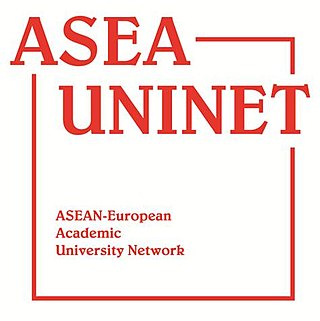
The ASEAN European Academic University Network (ASEA-UNINET) is a network of universities, consisting of European and south-east Asian universities. It was founded in 1994 by universities from Austria, Indonesia, Thailand and Vietnam with the goal of promoting the continuous internationalisation of education and research. Today ASEA-UNINET consists of 83 universities from 17 different countries.

Marion Diederichs-Lafite is an Austrian music journalist.
Barbara N. Moser is an Austrian concert pianist.
